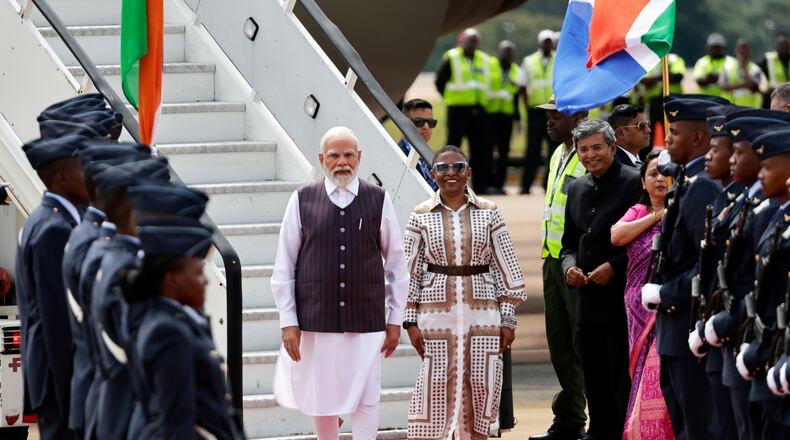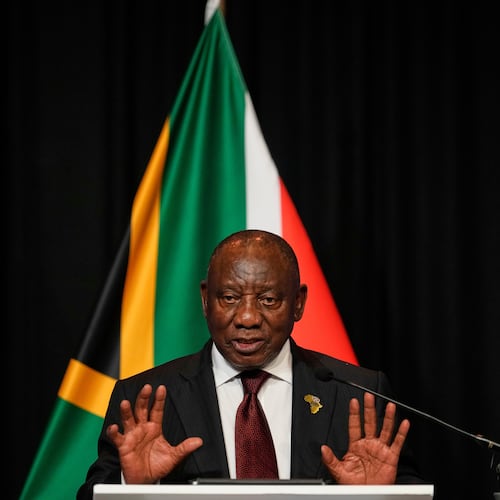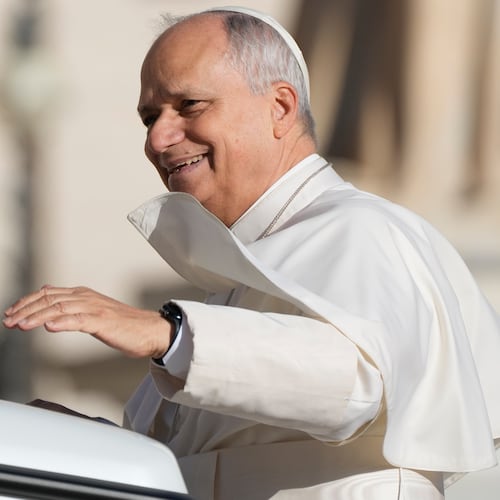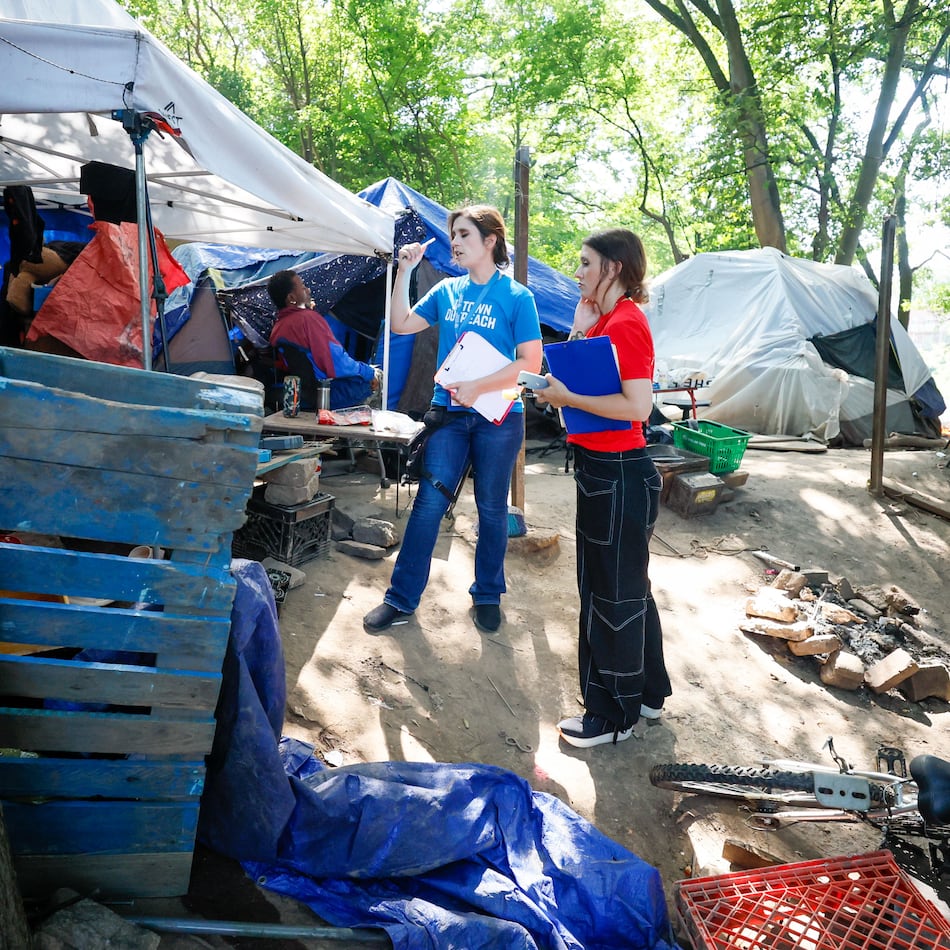JOHANNESBURG (AP) — World leaders arrived Friday for a historic first Group of 20 summit in Africa that aims to put the problems of poor countries at the top of the global agenda. But the talks have been undermined by a rift between host South Africa and the United States over a Trump administration boycott.
The weekend summit in Johannesburg will be attended by delegations from 18 of the world's richest and top developing economies — minus the U.S., which has branded South Africa's hosting a “disgrace" and won't participate in the talks.
The boycott by the world's biggest economy and founding G20 member was ordered by U.S. President Donald Trump over his claims that majority-Black South Africa is persecuting its white Afrikaner minority.
US opposition
Strong U.S. opposition threatens to undercut South Africa's chosen agenda for the summit, where the host wants to focus world leaders' attention on issues like the impact of climate change on the developing world, debt burdens for poor countries and widening global inequality.
Monthslong diplomatic tensions between the U.S. — which takes over the G20 presidency after the summit — and South Africa worsened this week when South African officials said Washington was trying to pressure it to not issue a leaders' declaration at the end of the summit in the absence of an American delegation.
South African President Cyril Ramaphosa responded: "We will not be bullied. We will not agree to be bullied.”
A leaders' declaration is the usual climax of G20 summits and details any broad agreement reached by the members, though it's not a binding document. The bloc has often struggled to put words into action due to the different priorities of members like the U.S., China, Russia, India and countries in Western Europe.
The G20 has expanded to 21 members, 19 nations plus the European Union and African Union, and is meant to bring rich and poor countries together to tackle problems, especially around the global economy.
Leaders of the United Nations, the World Bank and other international institutions also traditionally attend the summits as guests and U.N. Secretary-General António Guterres is in Johannesburg to push for reforms to help poor nations.
“Many developing countries, especially in Africa, find themselves at the bottom of the value chains,” Guterres said, adding rich countries have often been reluctant to give money or make concessions to help.
“Will the G20 be able to move in their direction? We’ll see. But I think South Africa has done its part in putting those things clearly upon the table.”
Others willing to work together
The U.S. boycott of this G20 is viewed as an example of Trump's criticism of multinational organizations, having pulled the U.S. out of the Paris climate agreement and the World Health Organization.
But other leaders have traveled to Africa's most developed economy hoping to find common ground, especially around new trade deals in the wake of U.S. tariffs.
“The African states are searching for partnerships," German Chancellor Friedrich Merz said, "and so I will go to Johannesburg in any case and hold talks there. ... I expect that we will return to Germany with good results.”
While it often operates in the shadow of the Group of Seven richest democracies, G20 members together represent around 85% of the world's economy, 75% of international trade and more than half the global population.
“The G20 is such an important gathering, it's the most important gathering for which Australia is a member,” said Australian Prime Minister Anthony Albanese. He said one in four jobs in Australia depended on trade with partners like those in the G20.
The EU announced a new critical minerals agreement with South Africa ahead of the summit and European Commission President Ursula von der Leyen said the G20 was an opportunity to “double down” on their partnership.
China increases its influence
Trump is not the only major world leader to miss the summit. China's Xi Jinping won't be in Johannesburg after cutting back on his international travel, and Russian President Vladimir Putin won't travel to South Africa as he is the target of an International Criminal Court arrest warrant over his alleged involvement in abducting children from Ukraine.
South Africa, as a member of the court, would be expected to arrest Putin if he set foot on South African territory.
But China and Russia will still send government delegations, leaving the U.S. as the only one of the 19 countries in the G20 not represented.
Chinese Premier Li Qiang, who is Xi's No. 2, used his trip to the G20 to stop off in Zambia to sign a $1.4 billion, three-country agreement to start the refurbishment of a Cold War-era railway line. That will help expand the already extensive influence of China — the U.S.'s biggest economic rival — in Africa and increase its access to critical minerals.
Some analysts say developing world countries could take the U.S. boycott as evidence of their need to further increase ties with others, especially China.
“This isn’t necessarily negative. It can catalyze more diverse leadership in global governance,” said professor Narnia Bohler-Muller, an international law and democracy researcher in South Africa.
Ramaphosa, who will chair the summit, put the U.S. boycott more bluntly: "Their absence is their loss,” he said.
___
Associated Press writer Mogomotsi Magome in Johannesburg contributed to this report.
___
Follow AP’s coverage of the G20 summit in South Africa: https://apnews.com/hub/g20-summit
Keep Reading
The Latest
Featured



